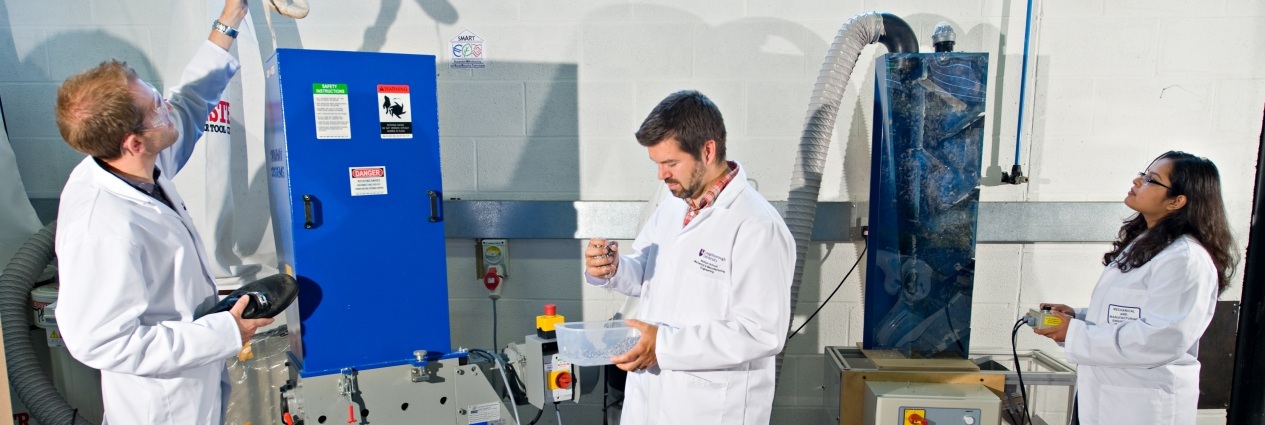Laboratory
SMART's 'Sustainable Manufacturing Laboratory' is a specially designed space located in the Wolfson School of Mechanical and Manufacturing Engineering at Loughborough University. It is used by the team to support our projects on sustainable product and process design, energy and water efficient manufacturing technologies, and remanufacturing and recycling technologies.
The lab is divided into four key zones dedicated to different types of work which target specific areas of our research:
Sustainable Design Hub
The 'Sustainable Design Hub' is used for manual disassembly and design analysis of various products. This provides access to range of software (e.g. LCA, material selector, CAPP, CAD, etc.) and hardware (energy monitoring, a range of mechanical and digital sensing technologies, optical cameras, etc.) tools to aid with improving the design sustainability of products and/or production processes used to manufacture them.
Sustainable Engineering Hub
The 'Sustainable Engineering Hub' is used to review and analyse the environmental performance of manufacturing processes. This provides access to a range of monitoring, control and measurement technologies for assessing resource (material, energy and water) efficiency of a process, and for investigating a range of proactive and reactive approaches to improve sustainability performance of manufacturing processes.
Automated Disassembly and Remanufacturing Cell
The 'Automated Disassembly and Remanufacturing Cell' is used to explore increased automation in disassembly and recovery of strategically important materials (SIMs) and/or components from products. This utilises Robotic technologies to improve concentration of SIMs prior to fragmentation and to increase recovery rate for a range of valuable waste materials such as precious metals and rare earth materials.
Waste Sorting and Separation Line
The 'Waste Sorting and Separation Line' is used for intelligent sorting of waste products prior to fragmentation, and separation of various waste material streams after fragmentation. This provides access to various sorting technologies using intelligent sensors, as well as mechanical, electromagnetic, and density-based separators for liberation of various materials from waste streams.
